One of the greatest parts about surfing is soaking up the sun while bathing in the salty ocean water.
Although this is great for the mind and feels amazing, constant exposure to the elements can have negative effects on a surfer’s skin.
Surfers do not necessarily have bad skin, although it is common to find older surfers with sun-beaten, wrinkly and dry skin.
A combination of long exposure to direct sunlight and the salty ocean can cause damage over time and should be considered if you enjoy spending hours riding waves in the ocean.
Below we will discuss both the negative and positive effects that surfing can have on your skin and how you can protect yourself from further skin damage.
- Is Surfing Bad for Your Skin?
- 9 Ways How Surfing Can Affect Your Skin
- Do Surfers Get More Skin Cancer?
- Do Surfers Get Acne?
- Can I Surf if I Already Have Acne?
- Can Surfing Cause Rashes?
- Do Surfers Get Wrinkles?
- How Can I Protect My Skin While Surfing?
- How to Take Care of Your Skin After Surfing
- Conclusion
- You Might Also Like…
Disclosure: this post contains affiliate links (clearly marked with ), which means we may earn a commission if you buy something through them, at no additional cost to you.
Is Surfing Bad for Your Skin?
Surfing itself is not bad for your skin.
However, the elements that surround surfing, such as saltwater, bacteria in the ocean, and constant sunlight can cause long-lasting and irreversible damage.
It is difficult to put the effects of surfing in a box as in some cases the exposure to ocean water can improve your skin quality, while other times it can do the exact opposite.
9 Ways How Surfing Can Affect Your Skin
Surfing affects our body in many ways, this can vary from physical fitness through exercise, damage to our eyes from exposure, or changes in our skin.
The list below represents different ways in which surfing can affect our skin, both positively and negatively.
1. Dry Skin
Salt, being hygroscopic, attracts water from its surroundings.
It is for this reason that spending long periods in the ocean leaves you feeling dehydrated and thirsty.
Because of its positively charged ions, salt attracts the negatively charged ions of water particles, thus drying out our skin.
Dry skin is not an immediate health issue, although left untreated it can lead to further problems.
Ironically, the way saltwater dries out our skin can also lead to a smoother, healthier skin because of the removed oils.
That being said, this is only true in minor cases, and over-exposure will generally produce the opposite effects.
2. Oily Skin
One positive of washing your skin with salt water is that it has an exfoliating effect.
Although, in small doses, this will remove excess oil and leave you with healthy skin, when overdone it is possible to remove too much oil.
When oil is removed from our skin our bodies counter this by producing more oils.
Overly oily skin can leave a shiny effect and in some cases result in an acne breakout.
3. Itchy Skin
When our skin becomes too dry it can become itchy and begin to flake.
As our skin dries out, skin cells become dehydrated and eventually die, leaving them to flake off as new skin cells are produced beneath.
Furthermore, another effect of the salt itself is that when it dries on our skin it can become itchy.
This is usually not a problem as it can be washed off with a simple freshwater shower after a surf.
4. Skin Infections
Although salt is antibacterial on land, in the ocean the saltwater creates a breeding ground for bacteria.
Every day wastewater from roads and sewage drainage makes its way into the ocean via coastlines.
Although this will usually only cause an issue if you have open wounds such as a new tattoo, in some cases these bacteria can cause topical skin infections.
Soft-tissue infections are fairly common when spending prolonged time in bacteria filled coastlines.
These infections are more likely when bacteria enter areas of broken skin.
However, as our skin is porous, even topical contact can lead to rashes, inflammation, and other skin infections.
5. Scarring
Closely relating to the above point, infections from the ocean are dangerous when seawater is exposed to an open wound.
In some cases, this can be life-threatening. In other cases, it can lead to further damage as flesh-eating bacteria takes hold of our skin.
When bacteria such as vibrio vulnificus infect our wounds, the cuts will not heal, but instead, begin to spread.
In these cases, once treated the chance of permanent damage and scarring to the surrounding area is high.
That being said, this bacteria can be washed off with fresh water and soap, once again indicating the importance of showering after a surf.
6. Tanned Skin
Our outer layer of skin cells contains a pigment called melanin. Melanin protects our skin from the harmful UV rays produced by the sun.
When we have exposure to sunlight our outer skin cells begin to produce more melanin to create a protective layer over our deeper skin tissue.
The more melanin our skin produces, the darker our skin becomes, hence why spending time in the sun leaves us with brown, tanned skin color.
As surfing is commonly practiced on warm sunny days, the results are often a bronze tone to our skin.
7. Sunburn
Although sun exposure encourages more melanin to be produced, over-exposure can lead to damage of our skin.
When we are overexposed to UV light, our melanin levels may not be sufficient, and therefore our skin becomes damaged.
Sunburn can be painful, cause fever, heatstroke, and in extreme cases lead to dead skin peeling from our body or blistering, which in turn can lead to scarring.
8. Skin Cancer
Time in the sun is directly related to health issues such as skin cancer.
As surfing is done outdoors, and the reflection from the surface of the ocean doubles up the angles that UV rays can make contact with your skin, surfing can result in a higher chance of skin cancer.
9. Smooth, Healthy Skin
The ocean is full of minerals. Magnesium, potassium, calcium, and zinc all have positive impacts on the health of our skin.
As the ocean is abundant with these minerals, spending long periods soaking in the sea can leave your skin healthier, more elastic, and with a greater shine.
Do Surfers Get More Skin Cancer?
According to a study conducted by Bond University, surfers in Australia were found to be three times more likely to develop melanoma (a cancer of the skin that affects its pigmentation) than the national average.
Australia holds one of the highest skin cancer statistics in the world, and as a surfer being three times more likely to develop these cancerous cells, it is evident that surfing raises your health risks.
This is likely due to the extended hours we spend in direct sunlight while surfing.
Because of this, it is important to take proper protective precautions, especially if you surf every day.
Do Surfers Get Acne?
Acne is a teenager’s nightmare. This is usually because when we go through puberty, our hormones are running rampant and our skin becomes excessively oily.
Oil builds up on our skin, particularly at the base of the hairs on our face, blocks pores, and leads to further buildup.
As this oil builds up, bacteria can become trapped in this oil and lead to infection and irritation.
How Does This Relate to Surfing?
As we spoke about above, extremely dry skin can lead to too much oil production. This can closely mimic a scenario similar to that of your teenage years.
Not only can surfing encourage an acne breakout through this situation, but due to the bacteria in the ocean, there is a high chance your pores will become infected.
Does This Mean That Surfing Is Likely to Lead To Acne?
Not exactly. The reason that surfing is not likely to lead to acne is for two key reasons.
Firstly, although over time the ocean water may cause your skin to become oily, the short-term effect is an exfoliating, oil-removing one.
This means that if your skin is particularly oily, surfing will likely remove this excess oil.
Provided you do not allow your face to become too dry, then there is a good chance that the salt will wash out your pores and leave you with cleaner, healthier skin.
The second reason that the ocean may not lead to an acne problem is because of the above-mentioned minerals.
Zinc, a mineral found abundantly in the ocean’s water, is commonly used to treat acne problems.
Zinc has been found to reduce the oil production in our skin and is, therefore, the perfect counterpart to your pimple problem.
That being said, spending long periods in the ocean and not rinsing off the salty, and potentially bacteria-filled water from your skin could result in zits and other acne-related problems.
Can I Surf if I Already Have Acne?
There is no reason why you should not surf if you are suffering from an acne breakout
In fact, because of the exfoliating aspect of the water and the zinc in the ocean, surfing may indirectly improve your acne problem.
Although salt water may help your acne, you should be aware of any open sores or zits around your body.
As mentioned multiple times, the ocean, especially around the coastlines of cities can be full of bacteria.
If you go surfing after popping your pimples, you will have open wounds on your skin which could encourage infection.
That being said, as long as you properly wash all the saltwater from your skin after surfing and use a small amount of moisturizer to prevent it from becoming too dry, then surfing should not have any negative effects relating to your acne.
Can Surfing Cause Rashes?
Besides rashes related to infection from bacteria in the ocean, wetsuit and wax rashes are common among surfers.
A wetsuit rash is usually caused by irritation from a combination of saltwater, sweat, and the friction of your wetsuit rubbing against your skin.
Similarly, wax rashes are caused by skin to wax friction, or from allergic reactions to the paraffin that surf wax is made from.
Most of these rash problems can be solved by using a second skin or rash vest underneath your wetsuit, or in warmer water, as a thin cover between your skin and your surfboard.
Do Surfers Get Wrinkles?
Everyone goes wrinkly at some stage, but it is common to find surfers and other sportspeople that spend a lot of time outdoors to begin developing wrinkly skin sooner than those that live with an indoor-dominated life.
The sun is well known to cause damage to our skin. Over time, UV rays increase the formation of free radicals in the skin, which damage its elasticity.
As surfers spend a lot of time in the sun, it is common to find that surfers develop wrinkles at younger ages and faster than those who avoid direct sunlight.
How Can I Protect My Skin While Surfing?
While surfing, there is nothing you can do to prevent saltwater from making contact with your skin, unless you substitute an ocean surf to ride some river waves.
Although you cannot prevent contact with salty water, this is not a problem unless you have open wounds, but this we have already discussed above.
As for protection from the sun, you have a few options.
1. Wear Sunscreen
Wearing sunscreen is always recommended while surfing or spending prolonged periods of time in the sun.
Your best option for this is using a mineral-based sunscreen.
Mineral sunblocks do not contain oxybenzone, a chemical known to destroy coral reefs.
Furthermore, mineral sunscreen will not wash away as easily as regular sunscreen and will therefore provide longer and superior protection.
2. Full-Length Wetsuit
To protect yourself from the sun, the best thing you can do is to make sure that UV rays do not make contact with your skin.
This can be almost entirely achieved by wearing a full-length wetsuit.
Although a wetsuit will cover most of your body, you should keep in mind that your hands, feet, and face will still be exposed.
Furthermore, in some situations, such as warm water surfing, it can be dangerous to surf in a full-length wetsuit because of the risk of overheating.
In these cases, a rash vest can be a helpful alternative.
It is important to use the appropriate length and thickness of the wetsuit, not only to stay warm but to prevent getting too hot.
3. Wear a Sunhat
Wearing a sunhat is also a good idea when trying to protect your face.
As discussed before, over-exposure to UV light speeds up our aging process and is likely to result in early age wrinkles.
There is an abundance of sun hats designed for surfing. These hats do not get easily waterlogged, tend to shade both the face and neck and have a strap to prevent loss.
How to Take Care of Your Skin After Surfing
While surfing, the protective methods that you take are mostly for the sun, unlike after surfing, where taking care of your skin is for the most part counteracting the negative effects of the saltwater and bacteria in the ocean.
To take care of your skin after surfing the following can be done:
1. Rinse With Fresh Water
It has been mentioned multiple times before, but it is worth saying again. It is always a good idea to take a freshwater shower after a surf.
Seawater on your skin will eventually evaporate, but the salt will be left behind. This salt will continuously draw out water from your skin.
2. Avoid Washing With Soap
Like shampoo, soap is not only antibacterial, but it also strips our skin of its natural oils.
At most times this can be beneficial, but after a surf, the oils on our skin have been removed and further drying of the skin can lead to dehydration, extra oil production, and eventually a faster aging process.
3. Use a Moisturizer
Because surfing dries out our skin, it is a good idea to use a moisturizer after a surf.
This can either be a specifically designed product such as a night balm or can be something simple like natural coconut oil or olive oil.
Although moisturizer is a good idea, it is important not to use too much or moisturize too often as this can lead to further skin problems.
4. Avoid Exfoliating
Exfoliation not only removes too much oil, but can make your skin feel dry, rough, and in extreme cases irritated and itchy.
As saltwater acts as a natural exfoliant, you should avoid additional exfoliating during periods when you spend a lot of time in the ocean.
5. Avoid Further Sun
As mentioned above, over-exposure to the sun can damage the skin, and raise your risk of skin cancer.
If you have spent many hours in the sun surfing, it is a good idea to avoid direct sunlight for the rest of the day, and potentially a few days to come.
This is especially important when you have become sunburnt.
Conclusion
It is common to find that surfers seem to age faster than people who do not spend prolonged hours in the ocean.
This is due to both sun exposure and the drying effect that saltwater has on our skin.
That being said, ocean water has numerous benefits for the health of our skin and hair.
As long as you are not over-exposed to sunlight and the ocean, as well as take the necessary precautions while surfing and after a surf, it is possible to avoid most of the negative effects.
You Might Also Like…
-

Do Surfers Ride Switchfoot? 5 Benefits (& Why You Should Learn It)
-

Do Surfers Shave Their Legs? 5 Common Reasons (+Pros & Cons)
-

Do Surfers Wear Helmets? 8 Situations You Should Wear One (+4 Cons)
-

Do Surfers Poop in the Ocean? Myths & Facts (+5 Tips)
-

Do Surfers Run Into Each Other? 5 Common Reasons (+8 Tips)
-

Do Surfers Have Beards? Pros & Cons You Should Know (+4 Tips)
-
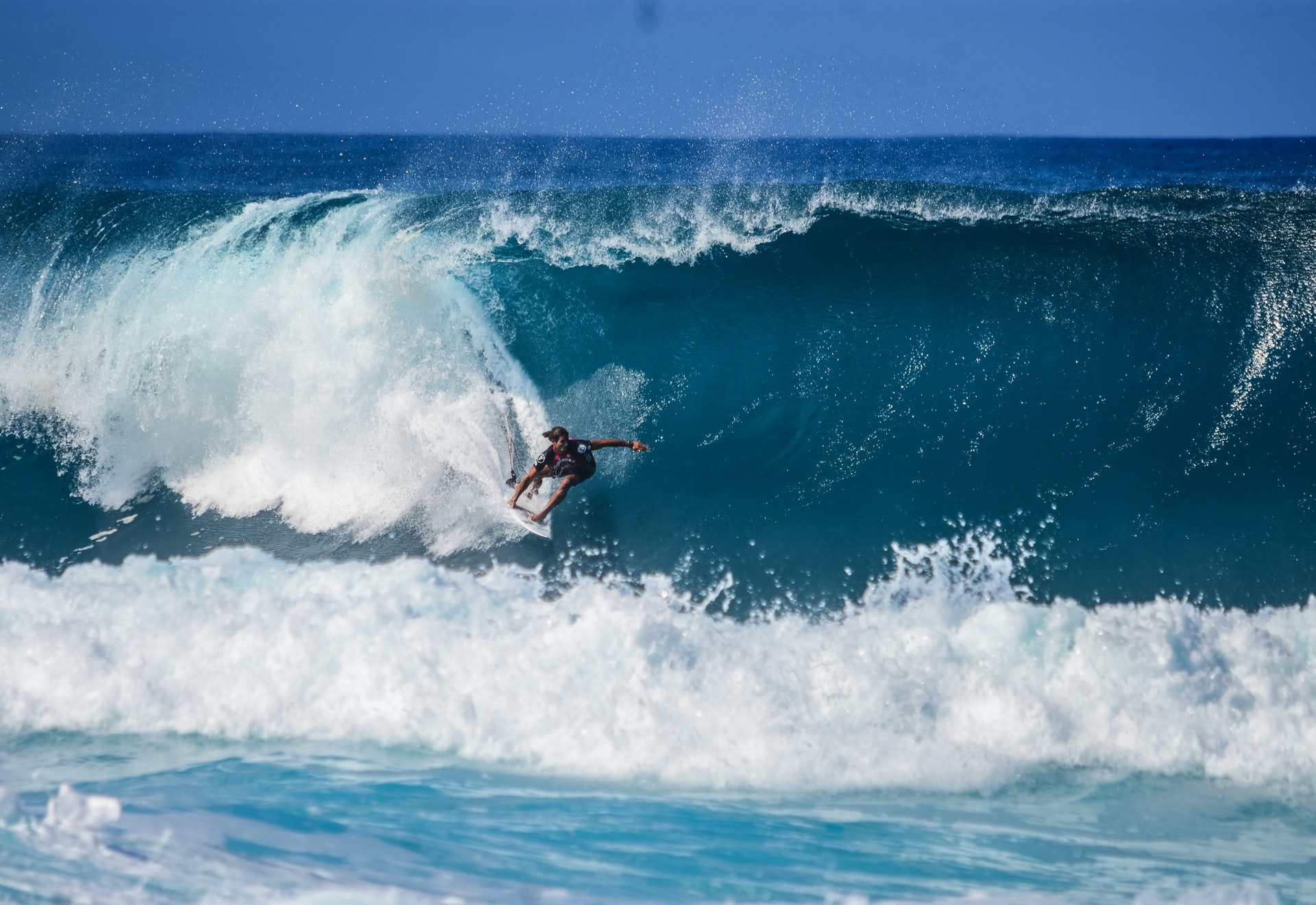
Do Surfers Like Constructive or Destructive Waves? (+Pros & Cons)
-
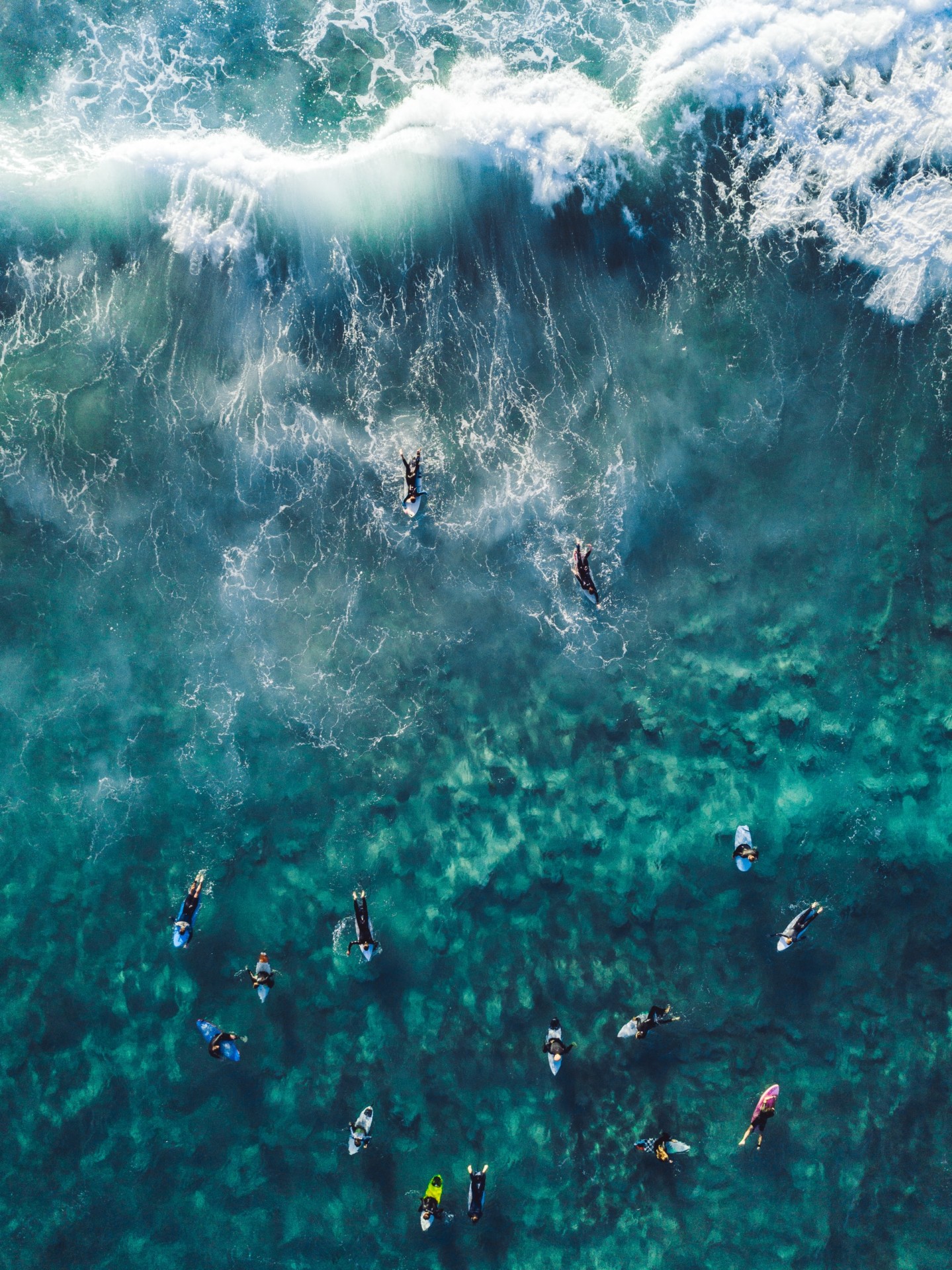
How to Surf Safely: 34 Crucial Tips (Every Surfer Should Know)
-
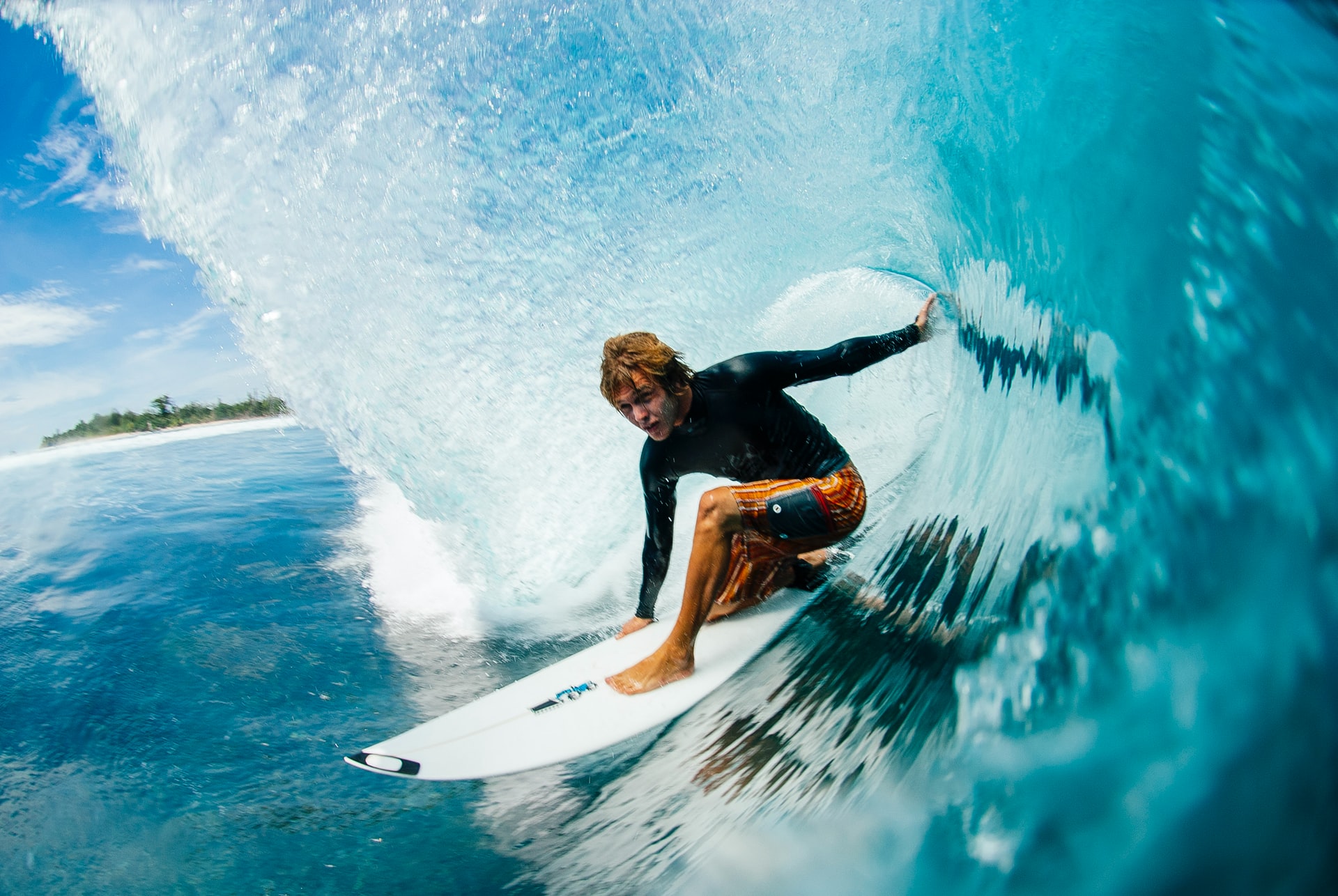
Do Pro Surfers Use Leashes? (+6 Reasons Why You Should Too)
-
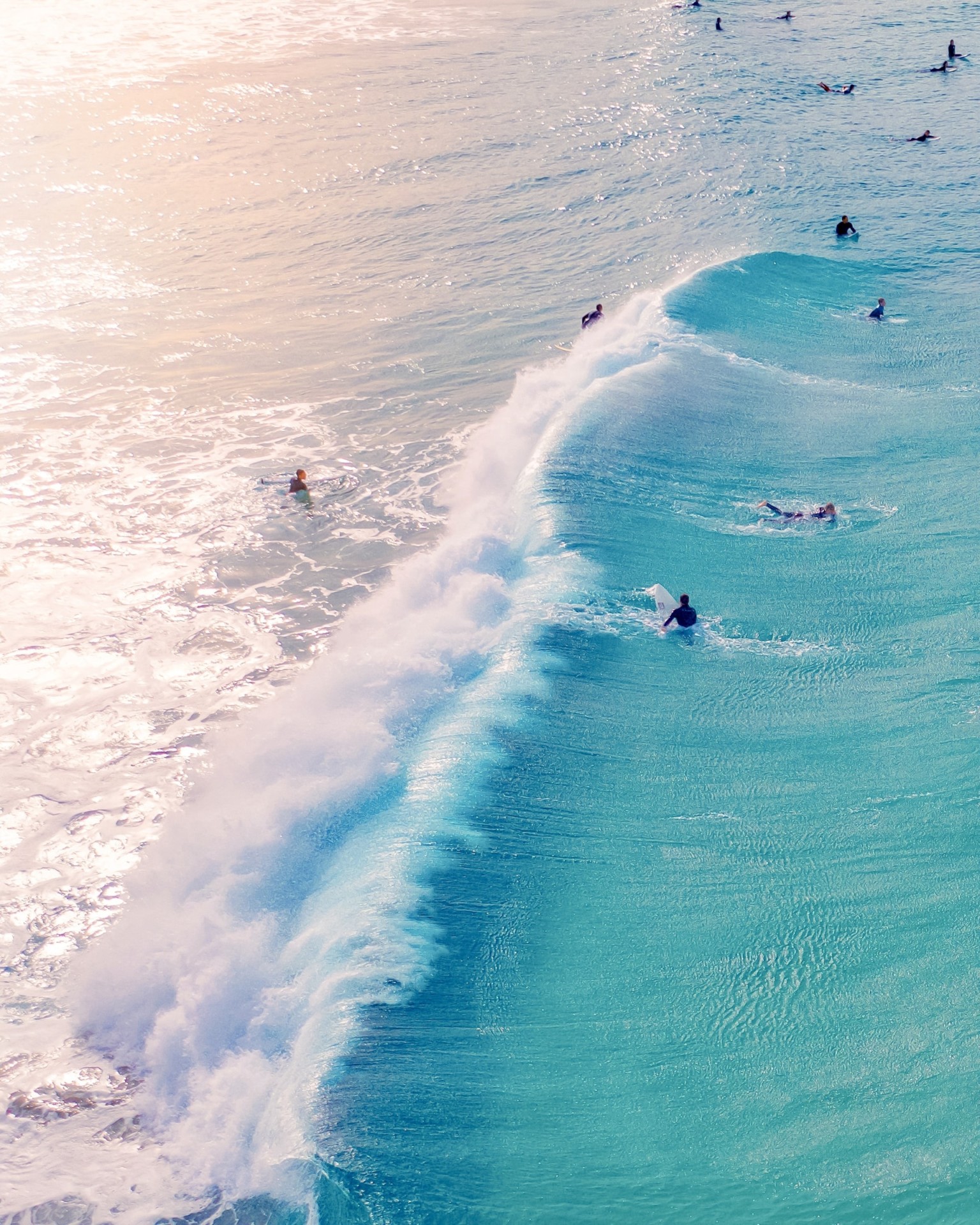
Do Many Surfers Drown? Here Are the Facts (+4 Common Reasons)
-
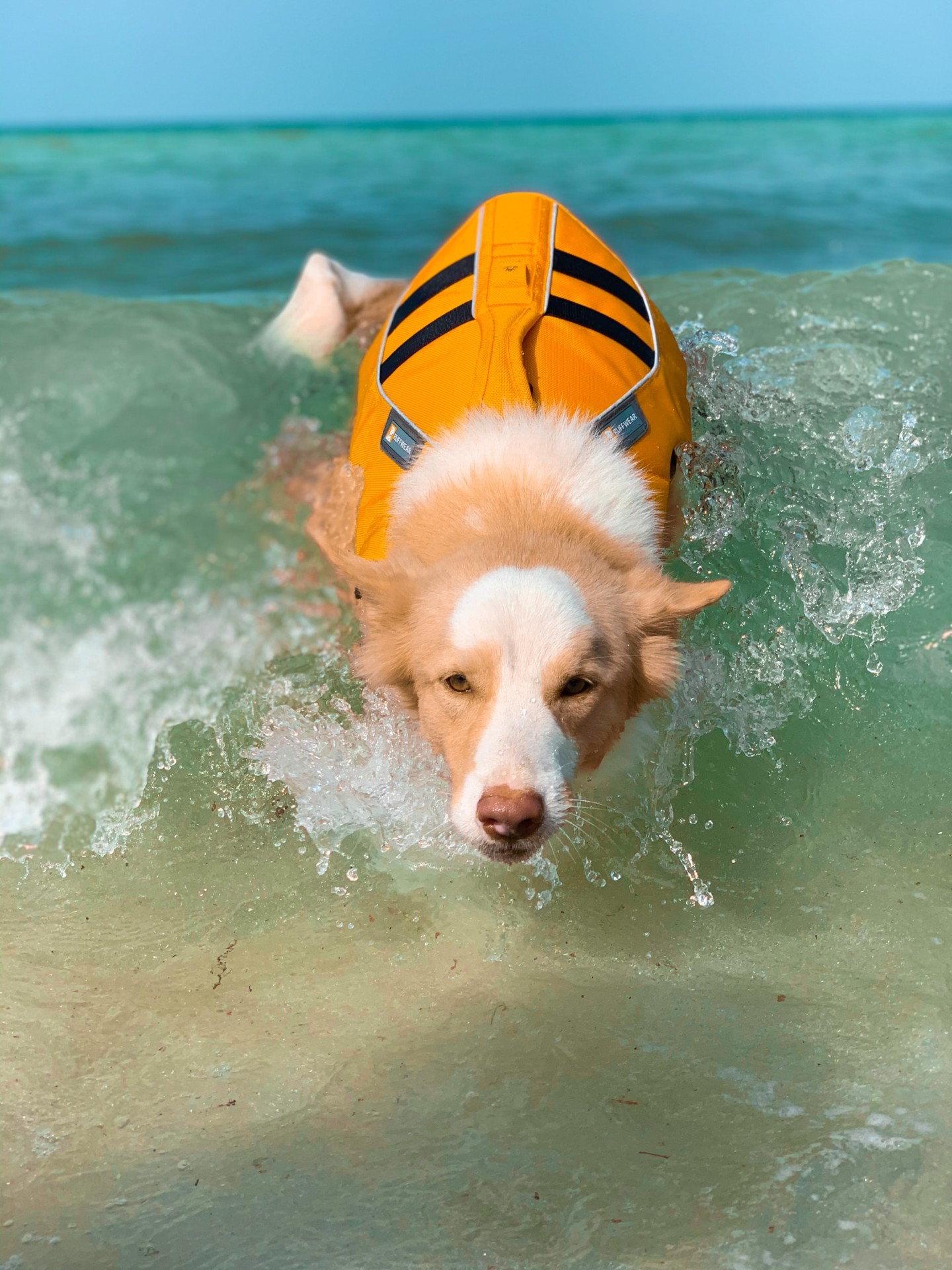
Do Surfers Wear Life Jackets? (7 Reasons Why They Don’t)
-
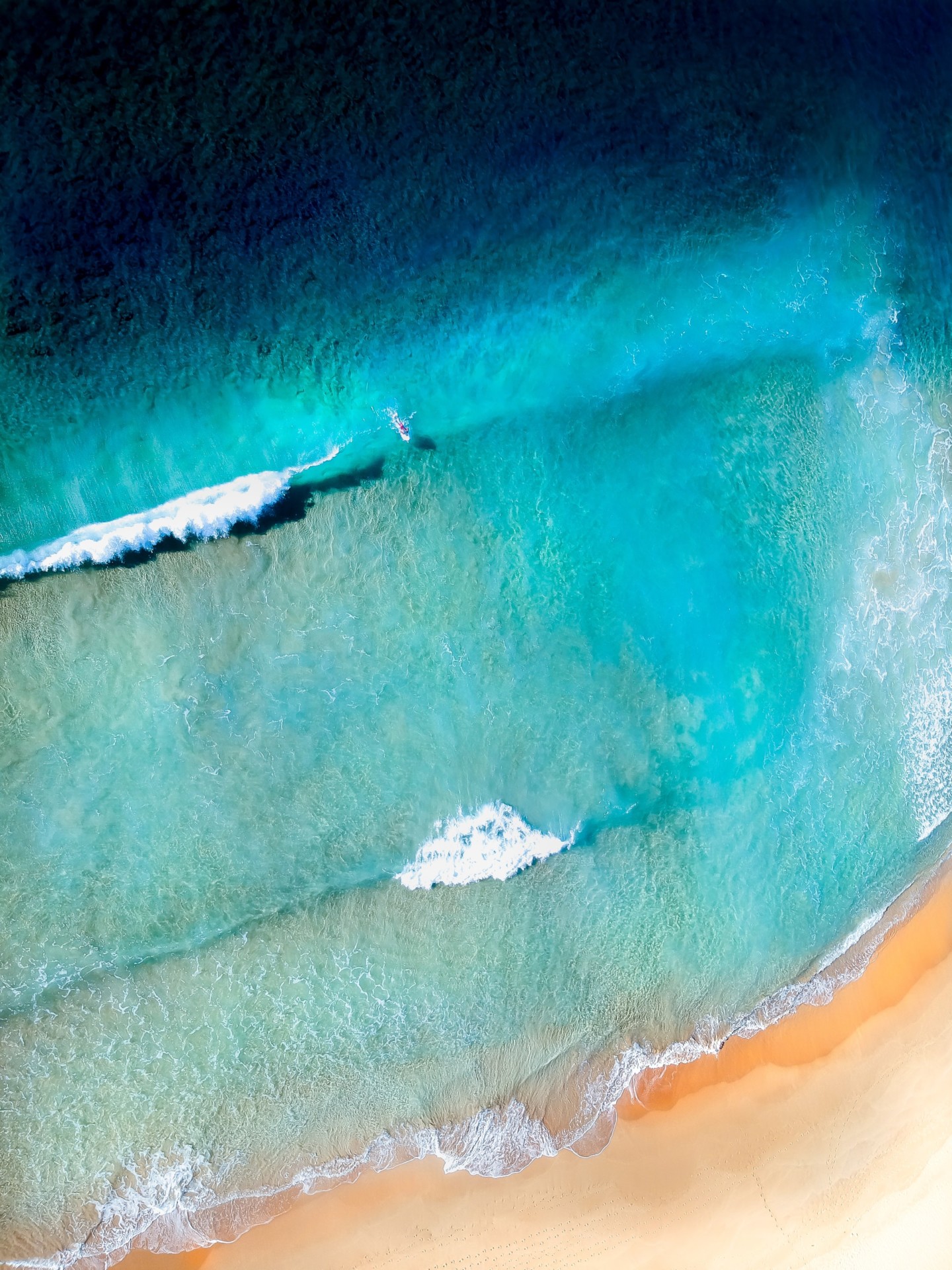
Do Surfers Like Rip Currents? (& How to Use Them Safely)








